Ecosystems: Interactions, Energy, and Dynamics
-
 Health & Medicine
Health & MedicineFor better weight control, fiber up!
Certain types of fiber suppress appetite, at least in mice. Found in fruits, vegetables, oats and barley, this fiber breaks down in the gut to release acetate. That travels to the brain, where the chemical prompts the release of hunger-fighting hormones.
-
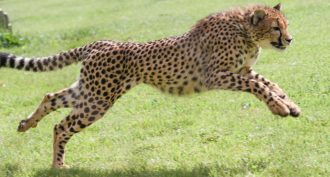 Animals
AnimalsMove over cheetah: Mite sets new speed record
A super-speedy species sprints faster than any other land animal — for its size, a new study finds. Scientists may someday tap this tiny mite’s technique to create robots and other devices that zip around at sensational speeds!
-
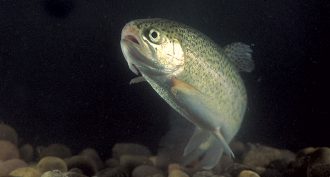 Animals
AnimalsDon’t mess with a frustrated fish
When a trout doesn't get the snack it expected, look out. These fish get aggressive. Sometimes they can defeat even bigger fish.
-
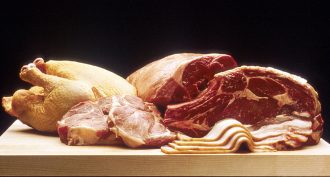 Health & Medicine
Health & MedicineInfected cutting boards
Germs can hitchhike into the kitchen on meat and many types of produce. A new study finds that some of those germs are particularly nasty. They are immune to the one or more of the drugs doctors would prescribe to wipe out the infection.
-
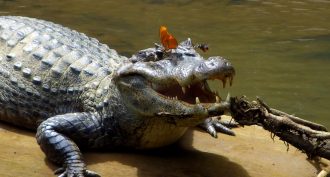 Animals
AnimalsThese insects thirst for tears
In some parts of the world, insects will drop by for a savory beverage. Interestingly, neither a croc — nor a scientist who offered his eyes up to ‘tear-sipping’ bees — seemed bothered much by the freeloaders.
By Janet Raloff -
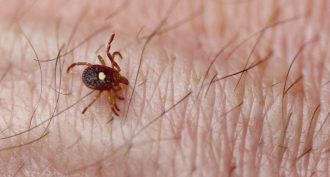 Health & Medicine
Health & MedicineNew ‘Heartland’ disease emerges in U.S. Midwest
A new viral disease causes major pain and flu-like symptoms. At present, no treatment or cure exists.
By Janet Raloff -
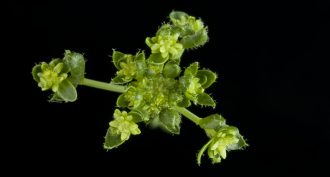 Plants
PlantsWily bacteria create ‘zombie’ plants
Scientists have discovered how some plant pathogens ensure their own survival by transforming flowering plants into strictly leaf-producing ones. These green ‘zombies’ attract insects that the parasites need to help them spread to other plants.
-
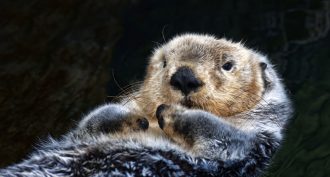 Animals
AnimalsSea otters picked up swine flu
A new study finds that large numbers of sea otters off of the U.S. Pacific coast have been exposed to the ‘pandemic’ type of this killer virus.
By Janet Raloff -
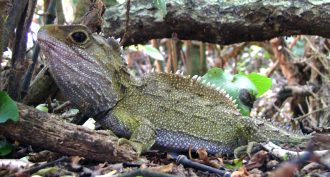 Animals
AnimalsWhen a species can’t stand the heat
When temperatures rise, New Zealand’s tuatara produce more males. With global warming, that could leave the ancient reptile species with too few females to avoid going extinct.
-
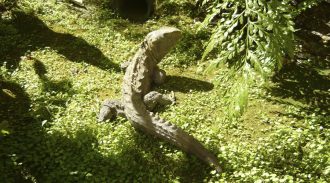 Animals
AnimalsExplainer: How invasive species ratted out the tuatara
The introduction of rats to New Zealand led to huge population losses of the ancient tuatara. These uncommon reptiles vanished from the mainland. This left isolated populations to survive on several dozen isolated islands.
-
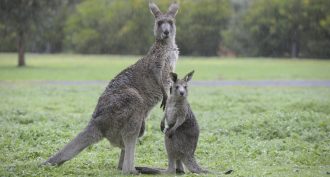 Animals
AnimalsKangaroos have ‘green’ farts
The farts and belches of these animals contain less methane than do those from other big grass grazers. Microbes in their digestive tract appear to explain the ‘roos lower production of this greenhouse gas, a new study finds.
-
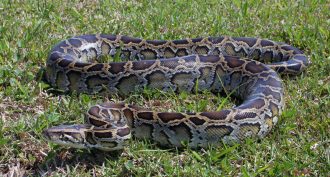 Animals
AnimalsPythons seem to have an internal compass
The giant, Burmese pythons living in Florida’s Everglades like their adopted home. And new research shows they can find their way back to it if people try to move them somewhere else. Not all snakes will do this.
By Susan Milius